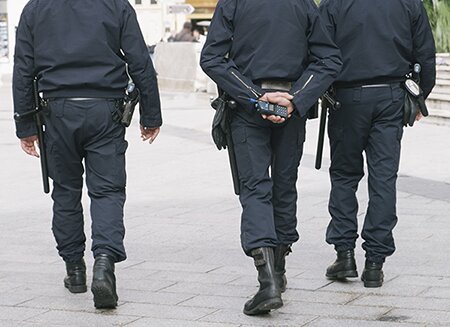Policing in America
Featuring
The highly publicized officer-involved killings of Tamir Rice, Walter Scott, Freddie Gray, and others have prompted renewed discussions about American law enforcement. Police departments face increasing criticism from protesters, the media, and the federal government. President Obama’s Task Force on 21st Century Policing published its recommendations earlier this year, but what do they mean for officers and the communities they patrol? Is sweeping reform necessary? With approximately 18,000 police agencies operating in the United States, is such reform even possible?
American policing is changing. Emerging technologies provide new methods both for police accountability and surveillance capabilities. Law enforcement scholars and practitioners continue to develop innovative strategies to address crime and disorder. In many cities, police agencies are wrestling with how to increase public safety while respecting the dignity of individuals, particularly in minority communities.
An array of law enforcement experts will explore these issues and more at the Cato Institute's conference "Policing in America." We hope that you will join us for a lively discussion of the developing changes and looming challenges in American law enforcement policy.
| 8:30 – 9:00 a.m. | Registration |
| 9:00 – 9:10 a.m. | Welcoming Remarks Jonathan Blanks, Cato Institute |
| 9:10 – 10:20 a.m. |
Panel 1: The Costs and Benefits of Emerging Police Technologies |
| 10:20 – 10:30 a.m. | Break |
| 10:30 – 10:45 a.m. |
Remarks by Grover Norquist, President, Americans for Tax Reform |
| 10:45 a.m. – 12:00 p.m. |
Panel 2: To Serve and Protect: A Discussion about Police Accountability |
| 12:00 – 1:00 p.m. |
Lunch |
| 1:00 – 2:15 p.m. |
Panel 3: Police and the Community: Minority Perspectives |
| 2:15 – 3:30 p.m. |
Panel 4: Rethinking Law Enforcement Strategies |
| 3:30 – 3:45 p.m. | New Cato Survey: American Attitudes Towards the Police Emily Ekins, Cato Institute |
| 3:45 – 4:00 p.m. |
Closing Remarks |
| 4:00 p.m. | Reception |

This work is licensed under a Creative Commons Attribution-NonCommercial-ShareAlike 4.0 International License.





